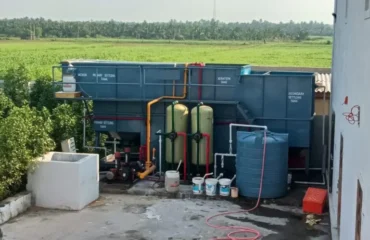Introduction
The pharmaceutical industry is crucial to global healthcare, consistently innovating to develop essential medications. However, this progress also leads to significant wastewater generation, which poses environmental challenges if not properly managed. In Pimpri, Amrita Water Solution excels in providing advanced Sewage Treatment Plants (STP) and Effluent Treatment Plants (ETP) tailored for the pharmaceutical sector. This article explores the necessity of STP and ETP plants, their operational mechanisms, and the benefits they bring to the pharmaceutical industry in Pimpri.
Importance of Wastewater Treatment in the Pharmaceutical Industry
Environmental Protection
Pharmaceutical wastewater contains various hazardous substances, including active pharmaceutical ingredients (APIs), solvents, and a mix of organic and inorganic chemicals. Effective treatment is crucial to prevent these pollutants from contaminating water sources, thereby protecting aquatic life and human health.
Regulatory Compliance
India’s Central Pollution Control Board (CPCB) and state pollution control boards enforce stringent wastewater discharge regulations. Compliance with these regulations is vital for pharmaceutical companies to avoid hefty fines and operational disruptions.
Sustainable Operations
Adopting effective wastewater treatment solutions supports sustainable business practices. Companies that prioritize environmental stewardship enhance their reputation, gaining trust from stakeholders and customers, and ensuring long-term success.
Key Components of STP and ETP Plants
Primary Treatment
Primary treatment involves the removal of large solids and organic matter from the wastewater using physical processes such as screening, sedimentation, and flotation.
Screening
Screens remove large particles and debris from the wastewater, protecting subsequent treatment processes from damage.
Sedimentation
In sedimentation tanks, heavier solids settle to the bottom, forming sludge that can be removed and treated separately.
Secondary Treatment
Secondary treatment focuses on the biological degradation of dissolved organic matter. This stage is crucial for reducing the biochemical oxygen demand (BOD) and chemical oxygen demand (COD) of the wastewater.
Aeration
In aeration tanks, oxygen is introduced to stimulate the activity of aerobic bacteria, which break down organic pollutants.
Activated Sludge Process
This process involves returning a portion of the sludge to the aeration tank to maintain high bacterial activity, ensuring efficient breakdown of organic matter.
Tertiary Treatment
Tertiary treatment is the final stage of the wastewater treatment process, aiming to polish the effluent and remove any remaining contaminants.
Filtration
Advanced filtration techniques, such as sand filters or membrane filters, remove fine particles and microorganisms.
Disinfection
Chemical disinfection using chlorine or ultraviolet (UV) light ensures that the treated effluent is free from pathogenic microorganisms before discharge or reuse.
Benefits of STP and ETP Plants for the Pharmaceutical Industry
Enhanced Water Quality
Amrita Water Solution‘s STP and ETP plants ensure that treated wastewater meets or exceeds regulatory standards, significantly improving water quality and protecting public health.
Cost Savings
Investing in robust wastewater treatment solutions can lead to long-term cost savings by reducing the risk of regulatory fines, lowering water procurement costs through water reuse, and minimizing waste disposal expenses.
Corporate Social Responsibility (CSR)
By implementing advanced STP and ETP plants, pharmaceutical companies demonstrate their commitment to environmental sustainability and social responsibility. This can enhance their corporate image and attract environmentally conscious investors and customers.
Challenges and Solutions in Implementing STP and ETP Plants
High Initial Investment
The cost of setting up advanced STP and ETP plants can be significant. However, Amrita Water Solution offers flexible financing options and scalable solutions to help companies manage these costs effectively.
Technical Expertise
Operating and maintaining STP and ETP plants require specialized technical knowledge. Amrita Water Solution provides comprehensive training and support to ensure that the client’s staff can operate the systems efficiently.
Space Constraints
In urban areas like Pimpri, finding adequate space for wastewater treatment facilities can be challenging. Amrita Water Solution designs compact, modular plants that fit within limited spaces without compromising on performance.
Conclusion
In conclusion, the pharmaceutical industry’s commitment to environmental sustainability and regulatory compliance is crucial for its continued success. Amrita Water Solution‘s STP and ETP plants provide comprehensive, efficient, and sustainable solutions for managing pharmaceutical wastewater in Pimpri. By investing in advanced wastewater treatment technologies, pharmaceutical companies can enhance their environmental performance, reduce costs, and build a sustainable future.


